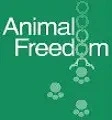Description of the 7 passion articles and links
7 People have written short columns to put
into words the connection they see between the passion
of 7 historical figures and the struggle for animal
rights and against factory farming.
7 weeks until Easter; Passion games; the Mattheus passion;
Passion fruit; passionate love….
What is passion anyway? And what does the Passion of
Jesus and the other historical figures have to do with
our passion?
7 figures from cultural history: Jesus, Othello, Mother
Theresa, Joan of Arc, Calvin, Don Quichote, Mary Magdalene.
What is their passion? Are they alike in the way they
follow their passion? Do they all know the double meaning
of the Greek word "passion": passion and suffering?
On this page we make a connection between passion
and standing up for animals.
Click the links in the names of the 7 figures (e.g.
"Othello") for columns by the participants.
In these 7 contributions that are 1 or 2 pages long,
you will find more links to relevant subjects on Animal
Freedom. |
Explanation, extensions and authors
Othello The Moore general from the Shakespeare play by the
same name. He fell in love with Desdemona, but became
lost in the net of jealousy his adjutant Jago carefully
laid out for him.
Shakespeare calls jealousy a monster that begets itself
and gives birth to itself.
Jealousy incites murder and suicide.
How can man overcome jealousy?
Contribution by Titus Rivas:
"Duende, flamenco and bullfights"
Isn't Spain even more than Italy, where Shakespeare
situated his play, the pre-eminent country that embodies
the spirit of passion and tragedy? Think of its flamenco
and bullfights. What is this inspiration called "duende"?
Although people recognize the beauty of wild animals,
tragedy after all requires that these animals must die
for precisely that. This reminds us of the tragic logic
of Othello. The same beauty (in a broad sense) of his
wife Desdemona requires Othello to murder her in fact
out of "love". The Andalusian recognition
of real tragedy is given a completely different expression
in flamenco. In flamenco, the artist overcomes negative
influences solely by creating, and never by destroying. |
Joan of Arc
could inspire
people into victory. Why then was she eventually given
the label 'dangerous lunatic'?
Contribution by Titus Rivas.
"Fighting until the end for all living creatures".
The women who devote themselves to animals do so with
their hearts and souls and offer all their time and
space for animals. Mies
van Oosten (deceased 2000): "man will have
to speak out for animals". |
Calvin
wanted the best
for people. A society in which God's word rules. Calvin
assumed predestination; are animals destined to be eaten?
What is God's will? Calvin let the Bible do the talking.
Contribution by Laura Tietjens:
"Why won't I eat animals?"
Laura put the question to God: why won't I eat animals?
She had an inner voice speak for God.
More about food in "Calvinism
and veganism". |
Jesus
lived for the Kingdom
of God. But wasn't he lonely? Could he make others drink
from the well that quenched his own thirst? Did that or
did that not become an agony? Of was this road a way of
showing others the entrance to the eternal source of life?
Contribution by Jo Anne Seldenrath:
"Miracle or animal abuse"? |
Can people in these times, with so much freedom
and so many opportunities, not live without cruelty
to animals? Do people need it for their livelihood to
enslave young animals for their dominion?
More on animals in: "the animal as guardian of human passion" (Ted van Loon) and in: Comments
to (Com) passion (Ruud Steenbergen) |
Don Quichote
and the windmills.
How is it possible that he is always more than a lunatic
who tries to execute a ridiculous plan as a purpose to
his life?
Contribution by Titus Rivas:
"Fighting windmills or for animal rights?".
Fighting to ban factory farming, is that fighting against
windmills?
Making use of "ridiculous" actions that work
well for the media. Freeing minks? Stopping the wheels
of economical export? |
Mother Theresa
had
a vision in Yugoslavia and subsequently devoted her entire
life to the pariahs in India. Was she able to share some
of her original inspiration with others, or did she become
an unreachable icon of humanity?
Contribution by Gineke Wayer:
"The flesh is weak".
We could basically all do what mother Theresa did for
people.
Animals in factory farming are treated like pariahs.
We could all do something for these animals every day,
namely by not doing something. Or is our flesh too weak?
Like mother Theresa, who followed the 'little road',
small initiatives can have great consequences. Don't
close your eyes. |
Mary Magdalene
Mary is the
woman who is always connected with Jesus. Why is there
always something erotic or sinful about her? From whence
comes this need to connect even Jesus to eroticism through
her?
Contribution by Titus Rivas and Bert Stoop:
"Conversion versus Leadership".
In speciesism, discrimination based on animal species,
animals - like women in sexism - are seen as practically
identical members of their species, instead of as unique
individuals.
Mary Magdalene is (taken a certain way) a model of emancipation. |

